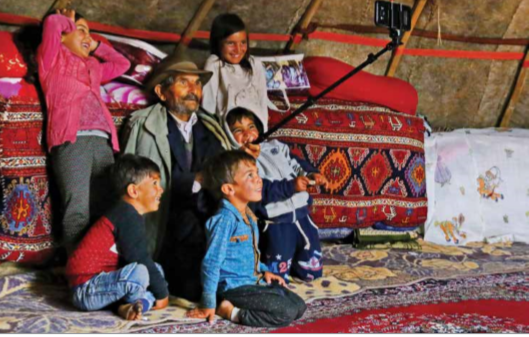
Introduction
The Ministry of Health and Medical Education of the Islamic Republic of Iran has developed a set of measures aiming to support people who lost their loved ones in the COVID-19 pandemic. Grieving the loss of a loved one during the pandemic can be overwhelming. Safety precautions have placed limitations on traditional burial ceremonies and mourning rituals. Many families were deprived of the customary support or even had to face stigmatization when dealing with grief and loss. This increases the risk of complicated grief arising among some individuals which adversely impacts their mental health. Two main types of interventions were designed for the prevention of complicated grief and supporting coping among people experiencing loss.
Providing opportunities for the bereaved to mourn safely
Hospital staff was trained on delivering bad news and communication with family members of the deceased. In addition, the divisions in charge of handling bodies and safe burial received guidelines to be considerate towards emotional, cultural and religious matters alongside keeping up with safety protocols. At the same time family members were given guidance on the safe ways to commemorate their lost loved ones and organizing funerals.
Structured psychological counselling to support coping better with loss
Family members of people deceased from COVID-19 were offered face-to-face counselling sessions performed under safety standards of the Ministry of Health and Medical Education. Referral pathways for individuals in need of more specialized (psychiatric) care were also developed.
The project was delivered through collaboration between the Department for Mental Health and Substance Abuse of the Ministry of Health and Medical Education (as the focal point of the project), the Iranian Psychiatric Association, and Iran University of Medical Sciences who developed guidelines, training materials and workshops, and the workflow. Mental health staff of all 63 medical universities, covering all 31 provinces were trained through video-conference sessions.
Conclusion
Counselling sessions allowed for the detection of psychiatric and substance use disorders as well as finding cases of domestic violence. They also provided an opportunity to identify and refer families in need of social and financial support.
Although some family members were not eager to attend sessions due to cultural beliefs, others who lacked social support and opportunities to express their sorrow have appreciated the service and reported feeling better afterwards. Some families would have preferred group sessions, which are not yet feasible due to physical distancing measures.
Some of the individuals invited for the counselling sessions were unable to attend due to fear of virus transmission. Telephone-based counselling services were offered for this group.




